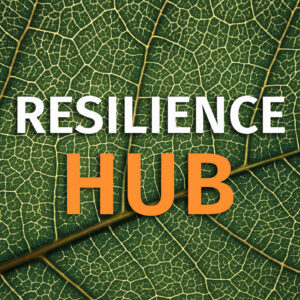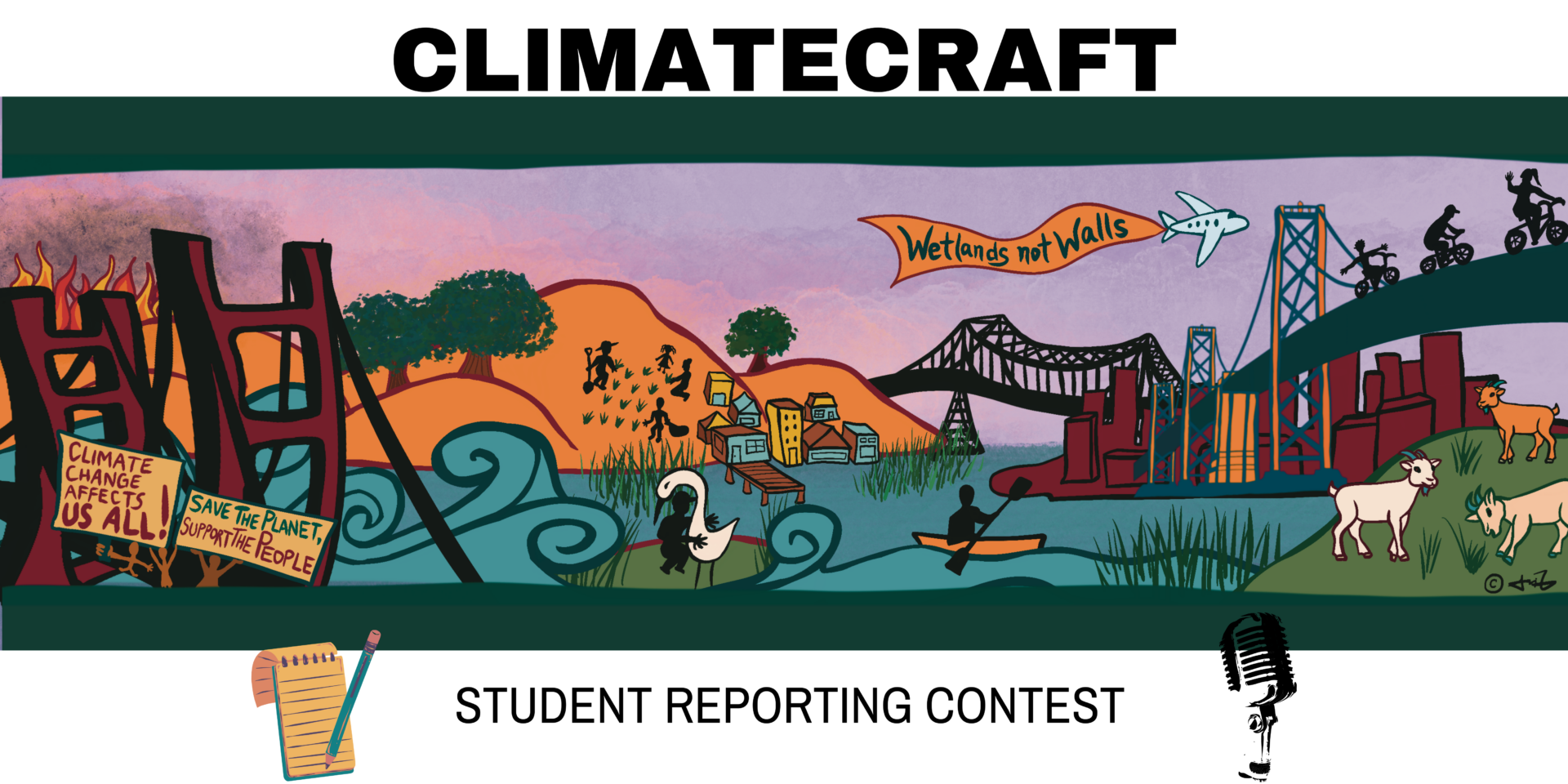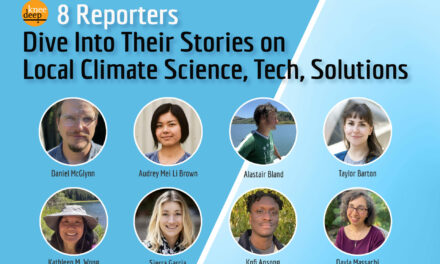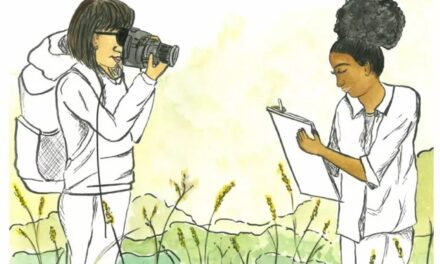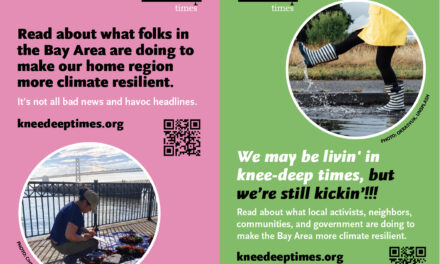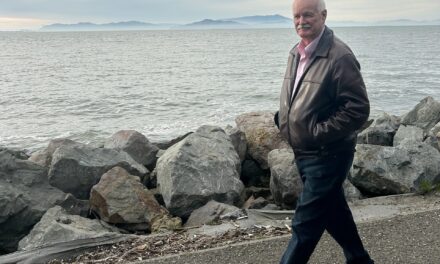ClimateCraft Student Reporting Contest
This fall, our editorial team will recognize outstanding reporting from Bay Area college students for stories about climate change, resilience or adaptation, and communities across the greater Bay Area region.
We will select winning submissions for individual entrants in three categories: individual written reporting, individual multimedia reporting, and team reporting. All winning entries will be published on the KneeDeep Times website. In addition, first place winners in each individual category will receive $500, and second place winners will receive $250. The winning team category submission will receive $1,000 to be divided among the team members.
Guidelines for All Entries
- Submissions must highlight climate adaptation, climate resilience, and/or climate justice in the Bay Area region.
- Students are welcome and encouraged to submit stories from reporting originally done for a class assignment or school newspaper, so long as KneeDeep Times retains rights to publish the final submission if selected as a winner.
- Entrants must be college students (undergraduate or master’s) or recent graduates (within six months of receiving a degree) with some connection to the greater San Francisco Bay Area (i.e. have lived, researched, or attended school in the region.)
- The deadline for entry for all categories is 9AM PST on Friday, October 14 (extended from the original deadline of September 16.)
Guidelines for Written Entries
- Articles must contain between 600-1,000 words.
- Articles should be submitted as PDFs or Word docs with your initials in the file name.
- Finalists may be given an option to submit photos or videos to complement their articles if appropriate, but contestants should not submit any content besides their writing at this stage of the contest. If your storytelling is primarily through a non-written medium, please see our multimedia reporting contest guidelines instead.
- Entries should include a headline and the full text of the submission. Please do not include your name within the submission document.
Guidelines for Multimedia Entries
- A multimedia piece may include a small amount of writing, but must have a non-written element (i.e. audio, video, photo, etc.) as the primary medium telling the story. Examples of multimedia reporting we will consider include, but are not limited to, video, audio, and graphic or photo essays.
- Video and audio submissions should be at least 5 minutes long, and no longer than 7 minutes.
- Photo essay submissions should include at least 10 photos with descriptive captions.
- Entries should include a headline and the full text of the submission. Please do not include your name within the submission document.
- If you have a question about whether your multimedia submission would be appropriate for this contest, please ask news-team@kneedeeptimes.org.
Judging Criteria
Your submission will be judged on the following criteria:
- Specificity: How well does it adhere to the themes of climate resilience and adaptation in the Bay Area?
- Execution: How well does it craft a compelling story?
- Originality: How well does it expand upon an unfinished story, or tell one that hasn’t been told before?
- Depth: How well does it integrate multiple perspectives, storylines, and subjects.
Additional consideration will be given to stories that reveal a connection to social equity and environmental justice.
Optional Prompts
You may find the following prompts useful as starting points for crafting a submission:
- What is one neighborhood/town/city doing to better prepare for fires/drought/flooding/heat waves?
- What ongoing local story has an underreported climate angle?
- Who are the organizations and people pushing the envelope with climate adaptation actions?
What is Climate Adaptation and Resilience?
The following written and multimedia articles are examples of reporting on the themes of this contest. Please be original, and feel free to reach out if you’re unsure whether your story fits the scope of this contest.
Future Class Projects
The editors are interested in working with professors and teachers to shape class storytelling projects covering climate resilience, social and biological sciences, and other topics. If you are an interested educator feel free to contact editor@kneedeeptimes.org.
Other Recent Posts
Reforming Rules to Speed Adaptation
Bay Conservation and Development Commission to vote early this year on amendments designed to expedite approval of climate projects.
Warner Chabot Shifts Gears
After 11 years at the helm of the Bay Area’s leading science institute, its leader moves back into the zone of policy influence.
Is Brooklyn Basin Emblematic of Regional Development Vision?
The 64-acre waterfront development adds thousands of new housing units to one of the world’s most expensive places, but questions remain about its future.
Coordinate or Fall Short: The New Normal
Public officials and nonprofits say teaming up and pooling resources are vital strategies for success in a climate-changed world.
Pleasant Hill Gets Sustainable Street Improvements
An intersection redesign with safer bike lanes earned a national Complete Streets award, while sparking mixed reactions from drivers.
Six Months on the Community Reporting Beat
The magazine worked with four journalists in training from community colleges, and began building a stronger network in under covered communities.
Rio Vista Residents Talk Health and Air Quality
A Sustainable Solano community meeting dug into how gas wells, traffic, and other pollution sources affect local air and public health.
New Year Immerses Concord Residents in Flood Preparations
In Concord, winter rains and flood risks are pushed residents to prepare with sandbags, shifted commutes, and creek monitoring.
What You Need to Know About Artificial Turf
As the World Cup comes to the Bay Area, artificial turf is facing renewed scrutiny. Is it safe for players and the environment?
Threatened by Trump’s Policies, GreenLatinos Refuses to Back Down
National nonprofit GreenLatinos is advancing environmental equity and climate action amid immigration enforcement and policy rollbacks.



